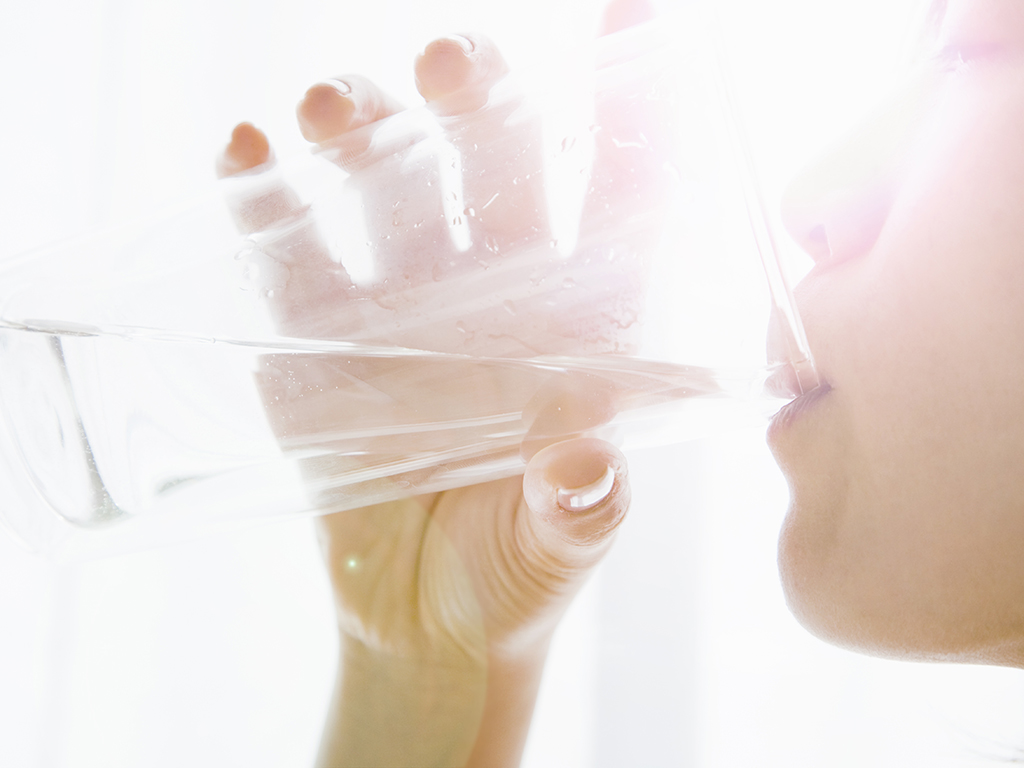It’s hard to pinpoint exactly where the information to drink eight eight-ounce glasses of water a day for optimal health came from, but doctors Rachel C. Vreeman and Aaron E. Carroll suppose that it dates back to a 1945 recommendation. Which means we’ve been drinking (or aspiring to drink) 64 ounces of water daily based on a medical rule that’s over 50 years old.

It comes as little surprise, then, that it has been debunked as a myth. Turns out, you may need more than 64 ounces of liquid daily depending on your height, weight, lifestyle and living conditions. But the requirements aren’t as rigid: you can hydrate with water, soup, milk, juice, and tea, for example. It doesn’t have to be just H20.
WATCH BELOW: Study on fruit and vegetables

In a 2007 paper published in the BMJ (British Medical Journal), Vreeman and Carroll point out that there is no evidence to support the eight-glasses recommendation, and say that adequate daily fluid intake includes the consumption of beverages like juice, coffee, tea and milk.
So what is the correct amount? According to the Mayo Clinic, it depends on a number of factors including your lifestyle and where you live — people who are active and live in a hot, humid climate will require more hydration than a couch potato in Alaska, for example. But overall, experts point to guidelines provided by the Institute of Medicine, which advises men to drink 13 cups (or three litres or 101 ounces) a day, and women nine cups (2.2 litres or 74 ounces). And unlike the recommendation from the mid-20th century, this includes all beverages, not just water.
Although she agrees there’s a lot of debate surrounding the daily water intake question, naturopathic doctor Quinn Hand still upholds the “eight by eight” rule with her patients.
- ‘Super lice’ are becoming more resistant to chemical shampoos. What to use instead
- Solar eclipse eye damage: More than 160 cases reported in Ontario, Quebec
- Canadian man dies during Texas Ironman event. His widow wants answers as to why
- ‘Sciatica was gone’: hospital performs robot-assisted spinal surgery in Canadian first
“I still recommend that ballpark figure because it’s easy to remember,” she says. “There’s been a lot of debate around how much water we need, but when you consider that the body is made up of 60 per cent water, and it’s responsible for moving toxins out of tissues and lubricating the mucus membrane to help ward off infection, it’s important to ensure you’re getting enough,” she said.
She advises her patients to track how much water they consume by getting a water bottle, measuring how much it holds and vowing to themselves that they’ll refill it once or twice a day.
While it’s unlikely for the average person to suffer severe consequences from dehydration — you’d have to go two days without drinking anything to risk death — she says many people learn to live in a dehydrated state. Those people believe that having a dry mouth or nasal passage is normal, and don’t equate it with a lack of fluids.
READ MORE: Trying to lose weight? Here’s how many calories you cut with each glass of water
“People need to pay attention to their thirst cues, including feeling fatigued, hungry, having a headache or dark urine,” she says. (Your urine should be light yellow in colour.)
If all this sounds eerily similar to the 1945-era “eight by eight” rule, that’s because it is, except water isn’t the only fluid that counts anymore.
“There are benefits to pure water, but you can make up water intake with other fluids like tea or coffee, and through foods with high water content,” Hand says. “Aim for eight to 10 servings of fruit and vegetables a day, like leafy greens, tomatoes, cabbage, cauliflower, eggplant, zucchini, radishes and watermelon.”
Overall, aim to drink at least one litre of water per day and you’ll most likely make up the rest in non-alcoholic fluids and food.






Comments